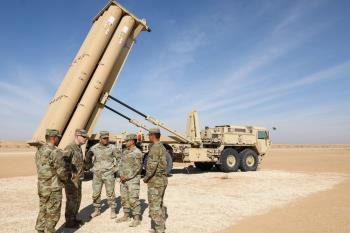Alwaght- Rohingya Muslims including women, men and children attempting to flee persecution in Myanmar by boat earlier this year were killed or severely beaten by human traffickers if their families failed to pay ransoms, and kept in hellish, inhuman conditions.
This is according to new report by Amnesty International, titled Deadly journeys: The refugee and trafficking crisis in Southeast Asia,which is based interviews with more than 100 Rohingya refugees – mainly victims of human trafficking, and many of them children – who reached Indonesia after fleeing Myanmar or Bangladesh across the Andaman Sea.
“The report released on Wednesday says daily physical abuse faced by Rohingya who were trapped on boats in the Bay of Bengal and Andaman Sea is almost too horrific to put into words,” Amnesty’s refugee researcher, Anna Shea, said.
“The shocking truth is that those we spoke to are the ‘lucky’ ones who made it to shore – countless others perished at sea or were trafficked into forced labor situations. Governments must do more to prevent this human tragedy from recurring.”
The harrowing events that unfolded in May 2015 – triggered by Thailand’s crackdown on human trafficking, and the traffickers’ subsequent abandonment of people at sea – left thousands of refugees and migrants stranded for weeks in desperate need of food, water and medical care.
While the UN estimates that at least 370 people lost their lives between January and June 2015, Amnesty International believes the true figure to be much higher.
Eyewitnesses who spoke to Amnesty International saw dozens of large boats full of refugees and migrants in similar circumstances, but only five boats landed in Indonesia and Malaysia according to UN sources. Hundreds – if not thousands – of people remain unaccounted for, and may have died during their journeys or been sold for forced labour.
With the monsoon over and a new “sailing season” already underway, thousands more could be taking to boats. Amnesty International is urging regional governments to urgently step up their response to the crisis.
Over 1.3 million Rohingya Muslims in Myanmar live in desperation following decades of persecution and discrimination including being denied citizenship, controls on their movements, family size and access to jobs.
In recent years, a large number of Rohingya Muslims have been killed and thousands displaced in attacks by extremist Buddhists, especially in Rakhine State. According to the United Nations , Rohingya Muslims are one of the most persecuted minorities in the world.
- Iran Report Reveals NATO’s Intelligence Role in 12-day War
- Iran Regards Any Plan That Ensures the Right to Enrichment as Acceptable
- Imam Reza Shrine Sends 1,000 Volunteers to Support Arbaeen Pilgrimage in Iraq
- Hamas Accuses Netanyahu of Endangering Israeli Hostages by Starving Gaza
- Iran Plans to Pursue Compensation in Talks with US, Official States
- Iranian MP Says IAEA Team Won’t Be Allowed into Nuclear Sites
- Why Are Israeli Elites and Rights Organizations Now Growing Critical of War Crimes in Gaza?
- The IAEA Will Send a Delegation to Tehran Next Week
- World Parliaments Conference Highlights Israel’s Isolation
- Iran’s Missile and Drone Capabilities Remain Intact and Combat-Ready
Editor's Choice

What Are the Consequences of American and Israeli Interceptor Missiles Drain? The 12-day war exposed the American and Israeli vulnerability to protracted missile strikes.
What Are Regional and International Effects of Macron’s Decision to Recognize Palestinian State? The French government finally joined the world front to support Palestine, something proving that resistance is the best option for Palestinians.
Why’s Syria not Settling Down? Syria has sunken into a state of chaos as the central government is weak and Israeli intervention is sending things complicated.
Resistance or Destruction: Syria Developments Have Serious Lessons to Iraq and Lebanon Syria is sinking in chaos as it forsook its historical resistance identity and this sends warnings to Iraq and Lebanon.
As Syria Sinks in Crisis again, Re-embracing Spirit of Resistance Looks Only Working Choice Syria faces a serious danger of split under al-Jolani’s rule and the only option for survival is return to its past path.
News

Iran Regards Any Plan That Ensures the Right to Enrichment as Acceptable
Iranian Foreign Ministry spokesman Esmaeil Baghaei stated that Tehran will consider any plan that ensures its right to continue uranium enrichmentImam Reza Shrine Sends 1,000 Volunteers to Support Arbaeen Pilgrimage in Iraq To support Arbaeen pilgrims across Iraq, Astan Quds Razavi has deployed about 1,000 servants from the Imam Reza (AS) holy shrine
Hamas Accuses Netanyahu of Endangering Israeli Hostages by Starving Gaza According to a high-ranking Hamas figure, Prime Minister Netanyahu is now resorting to starvation tactics in Gaza to kill Israeli captives
Iran Plans to Pursue Compensation in Talks with US, Official States Iran’s Foreign Ministry spokesman reiterated that any potential future talks with the US would include a demand for compensation
Iranian MP Says IAEA Team Won’t Be Allowed into Nuclear Sites A prominent Iranian MP says next week’s IAEA visit will not include access to nuclear facilities
The IAEA Will Send a Delegation to Tehran Next Week According to a knowledgeable source, an IAEA delegation will travel to Tehran next week to engage in talks
Iran’s Missile and Drone Capabilities Remain Intact and Combat-Ready Major General Amir Hatami highlighted the country’s steadfast missile and drone strengths as key to its preparedness for potential military conflict
Joint Sea-2025 Naval Drills Signal Growing Military Ties Between Russia and China Amid rising tensions with the United States over the Ukraine conflict, Russia and China have begun their ’Joint Sea-2025’ naval exercises
UN Warns One Million Women and Girls Facing Starvation in Gaza as Crisis Deepens According to the United Nations office in Geneva, the number of women and girls starving in Gaza has reached one million
Pezeshkian Praises Pakistan’s ‘Heartening’ Backing Amid Israeli-US War on Iran President Masoud Pezeshkian praised Pakistan’s unwavering backing of Iran throughout the recent 12-day Israeli-American conflict
IRGC Dismisses Two-State Solution as a Sinister Plot The IRGC dismissed the “devilish conspiracy” to implement a two-state solution allowing the Zionist regime to coexist with an independent Palestinian state
Gaza: Another Palestinian Journalist Killed in Israeli Attack, Fatalities Now at 233 An Israeli strike in Gaza has claimed the life of another Palestinian journalist
Pezeshkian Projects Annual Iran-Pakistan Trade Volume to Hit $10 Billion Iran and Pakistan intend to raise their annual trade volume to $10 billion, according to President Masoud Pezeshkian
Despite JCPOA Failures, Berlin Sides with US in Renewed Pressure on Iran Amid rising tensions, Germany’s Foreign Minister threatened to trigger the JCPOA snapback mechanism
Over 4 million Zionist Settlers Flee as Yemeni Missile Bypasses Israeli Defense Systems Yemen’s Armed Forces have launched another hypersonic ballistic missile at the Israeli regime’s most vital airport
Sheikh Qassem Vows Hezbollah Will Keep Its Weapons and Stand Firm Hezbollah Secretary-General Sheikh Naim Qassem stated that the Lebanese resistance will never agree to surrender its weapons to Israel
Israeli Crimes Must Be Stopped—These Are the Nazis of Our Time, Says Qalibaf Iranian Parliament Speaker Mohammad Baqer Qalibaf denounced the Zionist regime’s brutal actions in Gaza and its aggression toward Iran
HTS Executes Syrians While Simultaneously Filming the Violence Disturbing videos shared on social media show armed members of Hay’at Tahrir al-Sham (HTS) brutally executing unarmed Druze civilians
US Calls on Lebanon to Dismantle Hezbollah Ahead of Israeli Withdrawal The United States has reportedly placed significant pressure on the Lebanese government to disarm Hezbollah
Iran Seeks Closer Bilateral Ties, Araghchi Says in Meeting with Tajik President Iran is determined to expand ties with Tajikistan in diplomatic, economic, cultural, and other areas by drawing on shared values and interests
Most Viewed
Iranian MP Says IAEA Team Won’t Be Allowed into Nuclear Sites
Hamas Accuses Netanyahu of Endangering Israeli Hostages by Starving Gaza
Iran Plans to Pursue Compensation in Talks with US, Official States
Imam Reza Shrine Sends 1,000 Volunteers to Support Arbaeen Pilgrimage in Iraq
Iran Regards Any Plan That Ensures the Right to Enrichment as Acceptable
Iran Report Reveals NATO’s Intelligence Role in 12-day War
Why Are Israeli Elites and Rights Organizations Now Growing Critical of War Crimes in Gaza?
Will Qatar Stop Gas Supplies to the EU?
Iran Ready to Confront Israel and US Militarily, Top General Says
Sheikh Qassem Vows Hezbollah Will Keep Its Weapons and Stand Firm
Leader: The 12-Day War Highlighted the Islamic Republic’s Unmatched Resilience
New York Shooting Leaves Four Dead, Including Law Enforcement Officer
Over 4 million Zionist Settlers Flee as Yemeni Missile Bypasses Israeli Defense Systems
UN Warns One Million Women and Girls Facing Starvation in Gaza as Crisis Deepens
US Calls on Lebanon to Dismantle Hezbollah Ahead of Israeli Withdrawal
Iran’s Missile and Drone Capabilities Remain Intact and Combat-Ready
Iraq’s PMF, the Ensurer of Arbaeen Congregation Security
Iran Seeks Closer Bilateral Ties, Araghchi Says in Meeting with Tajik President
Iran: Israel Orchestrating Plan to Disintegrate Syria
Iranian MP Says IAEA Team Won’t Be Allowed into Nuclear Sites
Why Are Israeli Elites and Rights Organizations Now Growing Critical of War Crimes in Gaza?
What’s UAE Looking for in Central Asia?
Israel Deadlock in Yemen: Why’s Sana’a Unbeatable?
Resistance or Destruction: Syria Developments Have Serious Lessons to Iraq and Lebanon
Senior Iranian General Says Armed Forces Fully Confronted Threats
Tehran Denies Outreach for Negotiations, Labels Trump’s Comments as Groundless
Ayatollah Khamenei Presides Over the Ashura Night Mourning Ceremony in Tehran
Tehran Condemns Israeli Military Actions Against Yemen
Five Israeli Soldiers Killed, 14 Wounded in Attack on Infantry Unit in Northern Gaza
Al-Sharaa’s Azerbaijan Visit Suggests Anti-Iranian Bloc in the Making
For The First Time in Over a Decade, US Nuclear Weapons Have Been Deployed to England
Party Tensions Rise as North Carolina Democrats Label Israel an ‘Apartheid’ State
Tehran-Beijing Rail Connection: How’s Iran Become China’s Big Partner?
Why’s Trump Insisting on Gaza Ceasefire Plan?
What Are Regional and International Effects of Macron’s Decision to Recognize Palestinian State?
UNRWA Chief: Hunger and Exhaustion Causing UN Staff and Doctors to Collapse in Gaza
More Than 100 Senior Clerics Vow Steadfast Allegiance to The Leader
In Focus

Ansarullah
A Zaidi Shiite movement operating in Yemen. It seeks to establish a democratic government in Yemen.
Shiite
represents the second largest denomination of Islam. Shiites believe Ali (peace be upon him) to be prophet"s successor in the Caliphate.
Resistance
Axis of Resistances refers to countries and movements with common political goal, i.e., resisting against Zionist regime, America and other western powers. Iran, Syria, Hezbollah in Lebanon, and Hamas in Palestine are considered as the Axis of Resistance.
Persian Gulf Cooperation Council
A regional political u n i o n consisting of Arab states of the Persian Gulf, except for Iraq.
Taliban
Taliban is a Sunni fundamentalist movement in Afghanistan. It was founded by Mohammed Omar in 1994.
Wahhabism & Extremism
Wahhabism is an extremist pseudo-Sunni movement, which labels non-Wahhabi Muslims as apostates thus paving the way for their bloodshed.
Kurds
Kurds are an ethnic group in the Middle East, mostly inhabiting a region, which spans adjacent parts of Iran, Iraq, Syria, and Turkey. They are an Iranian people and speak the Kurdish languages, which form a subgroup of the Northwestern Iranian branch of Iranian languages.
NATO
The North Atlantic Treaty Organization is an intergovernmental military alliance based on the North Atlantic Treaty which was signed on 4 April 1949.
Islamic Awakening
Refers to a revival of the Islam throughout the world, that began in 1979 by Iranian Revolution that established an Islamic republic.
Al-Qaeda
A militant Sunni organization founded by Osama bin Laden at some point between 1988 and 1989
New node













